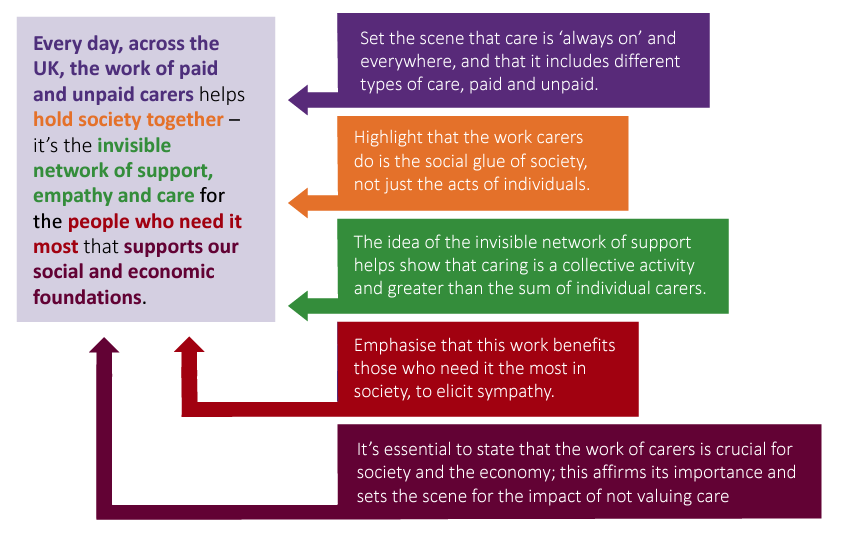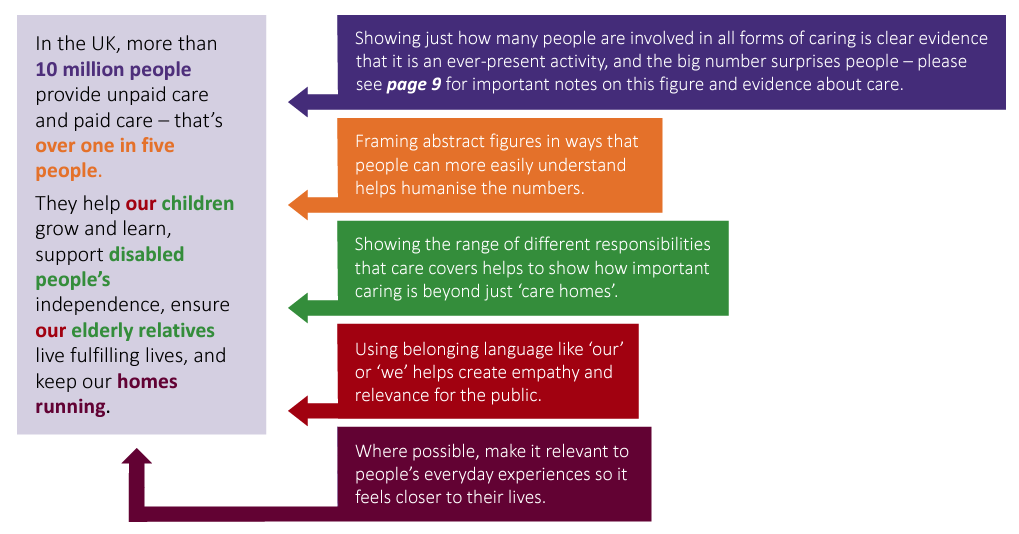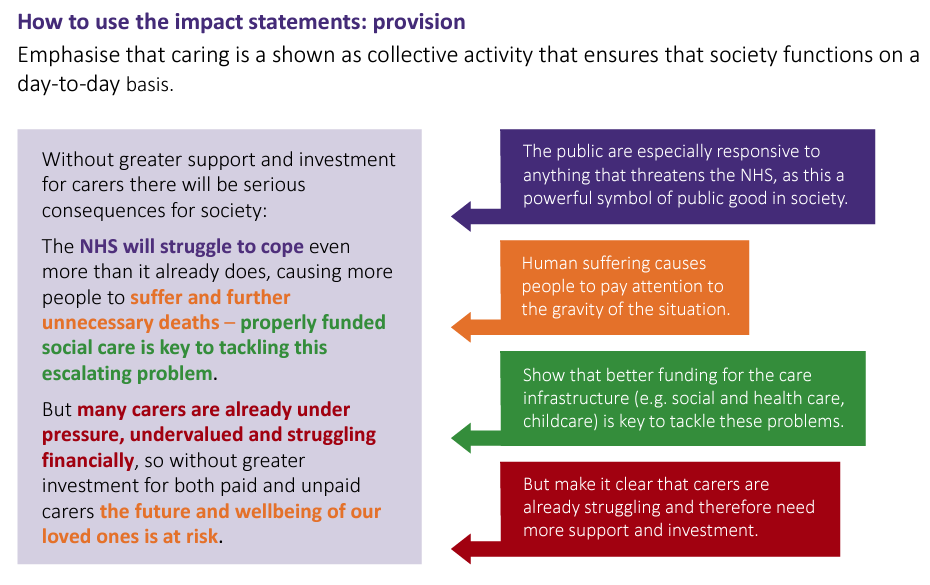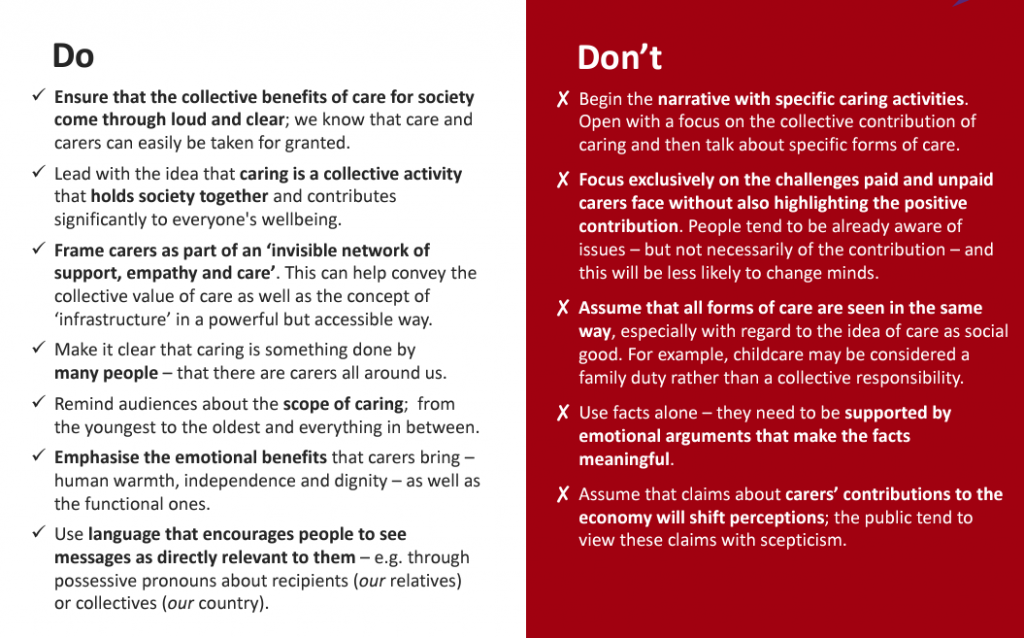
Been taking a look at Silvia Galandini, Anam Parvez and Nick Gadsby’s new Oxfam new ‘toolkit’ on building public pressure for change on the care economy, by constructing a ‘fresh and compelling narrative about the value of all care’. The toolkit is based on research to understand how the general public across the UK thinks about paid and unpaid care and testing alternative messages with a nationally representative sample of 3,000 people.
It’s really about how to write a good policy brief, or comms piece about a subject which is not currently top of the public’s list of concerns.
First, start with a clear premise: Here are their top tips.

Back it up with some overall numbers:

Then flesh that out with three ‘impact statements’. Each one describes the negative consequences of not providing greater support for and investing more in carers from different perspectives: the overall health and care infrastructure, and the wellbeing of wider society; carers themselves; and those receiving care. Here are the top tips on provision.

There’s some interesting audience research:

I have some questions on that – they asked the question straight after giving them the narrative. The answers might not have been so different if they’d gone back, say, a month later (I usually believe the last thing I’ve heard, and I suspect I am not alone).
Finally, a handy table of do’s and don’ts

Anything that encourages researchers and other care advocates to communicate better seems very welcome – will be interesting to see what people make of these suggestions.